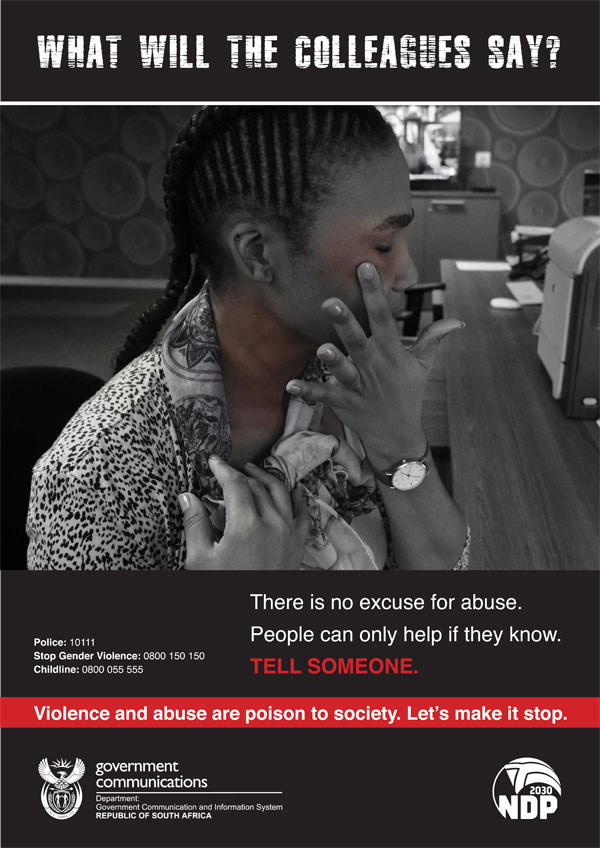May 2019 1st edition
May 2019 1st edition vuyelwan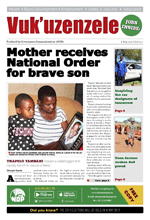
Translations
2019 National Orders part of SA’s first silver jubilee
2019 National Orders part of SA’s first silver jubilee vuyelwanThis year’s National Orders ceremony forms part of celebrating South Africa’s 25 years of democracy and freedom.
Director-General in The Presidency, Dr Cassius Lubisi,told Vuk’uzenzele that the country continues to recognise people for the various roles they have played in changing the nation and the world for the better.
National Orders are the highest form of recognition that South Africa bestows on deserving citizens and foreign nationals.
The President of South Africa, as the Grand Patron of the National Orders, presents the awards each year.
“This year is our silver jubilee. It is a big celebration, and the National Orders this year reflect what we have achieved in the past 25 years,” he explained.
“The National Orders will continue to be bestowed on anyone who is deserving, on those who do outstanding work for the country and those who advocate for peace and fight for social justice across the world,” he said.
National Order recipients
Two-time President of Madagascar Didier Ratsiraka was presented with the Order of the Companions of OR Tambo in Gold by President Cyril Ramaphosa at the National Orders investiture ceremony at the Union Buildings on 25 April.
Ratsiraka was instrumental in helping the liberation movement in its fight against apartheid.
“He offered the liberation movement a national and international platform through his country’s national television and radio stations,” said Dr Lubisi.
Thirty awards were bestowed on the day. Some of the recipients included veteran actress Nomhle Nkonyeni and journalist Mathatha Tsedu along with retired dancer Johaar Mosaval, all of whom received the Order of Ikhamanga in Silver.
Braam Jordaan, Constance Mirriam Thokozile Koza (Posthumous), Bongani Donald Mkhwanazi (Posthumous), Ray and Dora Phillips (Posthumous) and William Smith received the Order of the Baobab in silver.
South Africa’s six National Orders
The Order of Mapungubwe
The Order is awarded to South African citizens who have accomplished excellence and exceptional achievements to the benefit of South Africa and beyond.
The Order of the Baobab
The Order is awarded to South African citizens who have made exceptional and distinguished contributions in community service, business and the economy, science, medicine and technological innovation.
The Order of Luthuli
The Order is awarded to South African citizens in recognition of outstanding contribution in the struggle for democracy; nation-building; building democracy and human rights; justice and peace as well as for the resolution of conflict.
The Order of Ikhamanga
The Order is awarded to South African citizens who have excelled in the field of arts, culture, literature, music, journalism and sport.
The Order of Mendi for Bravery
The Order is awarded to South African citizens who have distinguished themselves by displaying extraordinary acts of bravery through which their lives were placed in great danger or who have lost their lives.
The Order of the Companions of OR Tambo
The Order is awarded to eminent foreign nationals for friendship shown to South Africa.
ASIDI programme develops Ermelo school
ASIDI programme develops Ermelo school angenithaThe community of Ermelo in Mpumalanga is elated with the refurbishment of the local Wesselton Primary School.
The school was handed over to the community after being upgraded as part of the Department of Basic Education’s Accelerated School Infrastructure Delivery Initiative (ASIDI).
The objective of ASIDI is to eradicate the backlog in schools without water, sanitation and electricity and to replace those schools constructed from inappropriate material like mud. This is to contribute positively to learning and teaching. 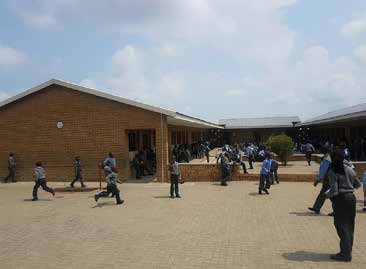
The refurbishments made at Wesselton Primary School include a new computer centre, classrooms, two specialised multi-purpose classrooms, science laboratory, three Grade R classrooms, hall, car parking lot, upgraded water reticulation system and electricity supply.
The school received 10 tablets from a private donors.
Local resident Gugu Vilakazi, who has her grandchild Sandiso Dladla at the school, said that the equipment will help improve learning conditions.
“The new learning equipment will benefit us a great deal. The kids now are learning mathematics. Some parents, such as myself, cannot help with the maths problems they are given at schools. The new equipment will help them learn,” Vilakazi said.
She said the equipment will also ensure that the pupils are exposed to the best education as the school has the latest in technological advancements.
School Principal Lillian Thusi told Vuk’uzenzele that the equipment received will ensure that the school delivered the best results.
Thusi said the school has come a long way.
“We started teaching in shacks. We had about 12 classrooms in that shack. We are coming from a very shameful situation but we tried by all means,” said Thusi.
The school has 1 683 pupils from disadvantaged backgrounds that can now receive the best education.
Did you know?
Since the inception of ASIDI in 2011 about 216 schools have been built and delivered across the country.
The ASIDI programme has also facilitated the provision of water to 836 schools, sanitation to 693 schools and electricity to 372 schools that previously had no access to these basic amenities.
All systems go for the National Orders ceremony
All systems go for the National Orders ceremony LondekileAll the necessary preparations are in place for the National Orders ceremony scheduled to take place on Thursday.
The ceremony will take place at the Sefako Makgatho Presidential Guesthouse in Pretoria. The National Orders honour South Africans and foreign nationals who have made and are making a meaningful contribution to the development of South Africa.
“The National Orders are the highest awards that South Africa bestows, through the President of the Republic, upon citizens and members of the international community who have contributed meaningfully towards making the country a free democratic and successful nation, united in its diversity,” said President Cyril Ramaphosa’s spokesperson Khusela Diko.
At the ceremony the orders of Ikhamanga, the Baobab, Luthuli, and Companions of OR Tambo will be conferred to deserving recipients.
Among those who will be receiving the orders is Madagascar’s former Head of State Admiral Didier Ignace Ratsiraka, Klaas de Jonge from the Netherland as well as the late Lucia Raadschelders from the same country.
The Order of the Companions of OR Tambo will also be conferred on South African born United Kingdom citizen and priest Archbishop Khotso Makhulu, Belgium’s Professor Paulette Pierson-Mathy, Italy’s Professor Riccardo Sarra and Ugandan born Professor Amii Omara-Otunnu who currently resided in the United States of America.
Some of the more recognisable South Africans expected to attend the ceremony include former Proteas All-rounder Jacques Kallis, musician Yvonne “Chaka-Chaka” Mhinga and actress Mary Twala-Mhlongo among others.
Meanwhile ordinary South Africans such as Sarah Tambani, the mother of Thapelo Tambani who died while rescuing a friend from a construction site excavation hole, the family of former Environmental Affairs Minister Edna Molewa and Andrew Trew who is a former head of Government Communication and Information System (GCIS)
Tshwane motorists are however advised to expect possible high traffic volumes in the area where the awarding ceremony will be held.
Brighter future for Makhado’s pre-schoolers
Brighter future for Makhado’s pre-schoolers tsoanaThe future of the children from a Limpopo village is shining brighter, thanks to a better school.
Pupils of the Divhani Crèche and School of Excellence in Makhado’s Divhani village have received a newly renovated early childhood development (ECD) centre.
Principal of the school, Mafindi Hulisani, said they were ecstatic with the new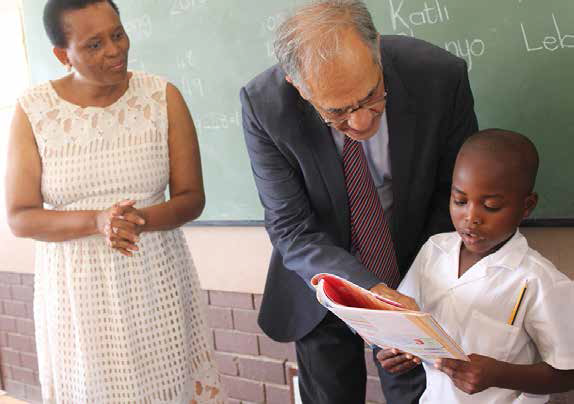 ly renovated classes.
ly renovated classes.
Hulisani said the renovations to the three-classroom school were supplemented with new learning material for the pupils.
The new renovations included the repairing of a ceiling, painting, air conditioners, toilets, proper fencing and a borehole.
The school was renovated by cellphone network provider, Vodacom.
The ‘new’ school – which was handed over by the Deputy Minister of Basic Education, Enver Surty, and Vodacom – caters for 42 pupils.
“The handover is thanks to a partnership with the Vodacom Foundation, which is currently supporting 3 000 schools and 92 teacher centres across the country with technology and infrastructure to enhance the education system,” the Department of Basic Education said.
Speaking at the launch, the Chief Officer: Corporate Affairs for the Vodacom Group, Takalani Netshitenzhe, said the best way to deal with the challenges faced by society is through education.
“Through our education ecosystem, we will be addressing many of the socio-economic challenges faced by communities. In the Vodacom-supported communities, we will be working in partnership with government, civil society and the communities to ensure that we address challenges in communities,” said Netshitenzhe.
The Divhani community crèche is one of 15 ECD centres chosen for upgrading and renovation, and Vodacom has extended assistance to its sister primary school.
The school’s new infrastructure was also welcomed by parents. Gladys Mafuku, whose three-year-old daughter attends the school, said the improvements will be good for the community’s morale and the children’s education.
Changing the legislative landscape
Changing the legislative landscape JoyAfter 1994, substantial work was done both in the public domain and behind the scenes to change South Africa’s laws.
When apartheid officially ended with the first democratic elections in 1994, the single most important task for the newly elected government was to completely transform the legislative framework of the country.
As a young democracy, South Africa’s progress in overcoming the evils of apartheid has been remarkable. Apartheid policies were included in virtually all laws of the country, affecting every sector of society. Starting afresh required repealing those laws, implementing new laws and changing the functioning of society.
A new dawn
For 25 years, South Africa’s democracy has been guided by a Constitution that is recognised as one of the best in the world. The Constitution’s most important aspect is the Bill of Rights, which forbids discrimination on the grounds of race, gender, social origin, age, religion, language and others. The Constitution became the supreme law of the country and resulted in the abolishment of many oppressive laws.
Under apartheid, people were separated along racial lines. This was largely guided by the Population Registration Act of 1950, which required every South African to be registered and classified under the groups black, white or coloured. Various social rights, political rights and education opportunities were determined by race.
The Act was repealed by Parliament in 1991, although it has remained necessary to continue to classify South Africans according to race, in order to reverse the injustices of the past through new policies such as black economic empowerment.
Abolishing geographical segregation
The creation of Bantustans was one of the major policies established under the apartheid government’s rule. Also known as “homelands”, these 10 areas were established based on the Natives Land Act of 1913, which set aside only 13 percent of land in South Africa for black residents. The Bantu Homelands Citizenship Act of 1970 declared that all black Africans were citizens of independent homelands rather than of South Africa itself. Approximately eight million black people lost their citizenship.
After the 1994 elections, the Bantustans were officially abolished and the country was redivided into the nine new provinces.
Transforming the education system
The Bantu Education Act of 1953 was established in order to enforce racially separated schools and institutions of higher learning. Under this system, black youth were only equipped with the skills needed to enter the unskilled labour market.
While schools for white children were of world-class standards, a high proportion of black schools did not have running water, electricity or plumbing.
Although the Act was repealed by the Education and Training Act in 1979, some aspects of racial segregation remained. Under the new Constitution, the Education and Training Act was repealed by the South African Schools Act in 1996, which entitled all South Africans to equal access to education.
The start of a new chapter
Over the past 25 years, government has not only had to cancel oppressive laws, but introduce new laws and programmes that fulfil the aims of the Constitution.
After the creation of a new Parliament, a number of new institutions were established to uphold the provisions of the Constitution. The Constitutional Court was established in order to observe and enforce the observance of any law within South Africa. Chapter 9 institutions such as the Public Protector, Independent Electoral Commission, the South African Human Rights Commission and the Commission on Gender Equality have all acted as protectors of democracy and the rights of citizens.
Since 1994, government has introduced hundreds of new pieces of legislation, many of which focus on redressing the injustices of the past. Introduced in 1994, the Reconstruction and Development Programme has been the guiding light in reversing the inequalities of apartheid through housing, water, electricity, land reform, access to healthcare and public works programmes which have improved the living standards of millions.
New human rights, labour, land reform and social welfare laws have increased equality and improved the lives of many.
Under apartheid, the system of local government failed to meet the basic needs of most South Africans. In 2000, local municipalities were established and their functioning is guided by the Local Government Municipal Systems Act.
Changes in South African legislation since 1994
Apartheid’s basic legal framework consisted of four acts – the Population Registration Act, The Group Areas Act, the Land Act and the Separate Amenities Act – which were abolished with the advent of democracy.
Since 1994, a total of 1 313 new acts have been introduced or amended in South Africa.
DAFF Producer/Farmer Register Campaign
DAFF Producer/Farmer Register Campaign angenithaGovernment supports ECD
Government supports ECD JoyGovernment is committed to Early Childhood Development (ECD), which is globally recognised as the most powerful investment in human capital that a country can make.
 “If we are to break the cycle of poverty, we need to educate the children of the poor,” said President Cyril Ramaphosa in his 2018 State of the Nation Address (SoNA).
“If we are to break the cycle of poverty, we need to educate the children of the poor,” said President Cyril Ramaphosa in his 2018 State of the Nation Address (SoNA).
A lack of opportunities and interventions during early childhood can significantly disadvantage young children and diminish their potential for success.
Despite this, in 2009 North West University ECD specialist, Dr Juliana Seleti, said at the World Bank Technical Workshop of the Africa Early Childhood Care and Development Initiative that the pre-1994 apartheid system did not spare children.
There were no ECD policies, even for privileged children, and only a fragmented system of ECD services, which very few children benefited from.
She said organised policy development in South Africa only began in the early 1990s, after former President Nelson Mandela was released from prison.
By 2003 the departments of Social Development, Basic Education (DBE) and Health had developed their own ECD policies; well-defined units and sections were established and the financing of ECD became a budget item from the year 2000.
ECD has since become a government priority and Cabinet approved the National Integrated ECD Policy in December 2015, to transform ECD service delivery in South Africa by addressing critical gaps and ensuring the provision of comprehensive, universally available and equitable ECD services.
ECD moves to the DBE
The responsibility for ECD centres has migrated from the DSD to DBE, with over 700 000 children currently accessing ECD services across the country.
“This is a significant step in the progress of education for young children in our country and, if implemented correctly, will be an important step in achieving the vision of the National Development Plan Vison 2030. However, without clear implementation plans and concrete actions, this announcement will not deliver any benefits to the country or its youngest citizens,” said President Ramaphosa.
The next step in the process is the two years of compulsory ECD for all children, in preparation for Grade 1, as announced by President Ramaphosa in his 2019 SoNA.
 “Another critical priority is to substantially improve reading comprehension in the first years of school. This is essential for equipping children to succeed in education, in work and in life and is possibly the single most important factor in overcoming poverty, unemployment and inequality,” the President said.
“Another critical priority is to substantially improve reading comprehension in the first years of school. This is essential for equipping children to succeed in education, in work and in life and is possibly the single most important factor in overcoming poverty, unemployment and inequality,” the President said.
“We will be substantially expanding the availability of early reading resources across the foundation phase and over the next six years we will provide every school child in South Africa with digital workbooks and textbooks on a tablet device. We will start with those schools that have been historically the most disadvantaged and are located in the poorest communities, including multi-grade, multi-phase, farm and rural schools,” he added.
Basic Education Minister Angie Motshekga said that the department is ready to phase in digitised textbooks from next year.
In March 2019 the DBE – in partnership with the Vodacom Foundation, Nelson Mandela Foundation, United Nations Women and Global Citizen – handed over an ECD Centre at Divhani Crèche and at the Frank Ravele Secondary School of Excellence in Vhembe, Limpopo.
The crèche, one of 15 ECD centres chosen for refurbishments, received a complete infrastructure makeover.
Frank Ravele Secondary School is one of 12 Schools of Excellence identified by the DBE for the collaboration with Vodacom, which already connects 3 000 schools and 92 teacher centres across the country.
Did you know?
- National Treasury continues to provide funding for ECD through a ring-fenced grant.
- The ECD conditional grant will support about 60 000 poor children and upgrade between 600 and 800 ECD centres over the next three years.
- The budget allocation for the grant rises from R518 million in 2019/20 to R553 million in 2020/21.
Growing little minds
The first 1 000 days of a child focus on adequate nutrition, care, safety and stimulation. For children from two to five years old, the focus is on quality stimulation and care, and this is where ECDs play a crucial part.
Inspiring the car designers of tomorrow
Inspiring the car designers of tomorrow JoyLearners’ passion for engineering will be revved up with the donation of BMW X3s to specialised schools and universities across the country.
Learners from Soshanguve Engineering School of Specialisation (SoS) will be able to enhance their skills in automotive technology, thanks to a partnership between the Gauteng Department of Education and BMW Group.
Gauteng Education MEC Panyaza Lesufi said the aim of the initiative is to nurture talent in young people across key disciplines and develop the country’s future leaders.
He said the partnership would also provide learners with workplace experience, learnerships, artisanship and entrepreneurial skills.
The MEC said the country’s schools of specialisation are intended to respond to the national skills shortage and youth unemployment crisis.
“We are excited about our partnership with BMW, which donated one of its first X3 models to the school,” he said.
Addressing the learners, the MEC said they should use the car to learn about how cars function, and also how they are designed and manufactured.
“Do not be thrilled by working at a car-wash and only touching a BMW when you wash it. Be thrilled by designing and building it,” he said.
“Many cars across the world are built outside our country. Today we bring this car to you to demonstrate that you have what it takes to learn how to build cars for the world,” he added.
Among other things, MEC Lesufi said the car company would support the school with training services and material.
Busisiwe Nhlapo (17) is one of the Grade 11 learners who studies mechanical automotive technology at the school.
"I feel fortunate to be studying at the SoS because when I completes matric I will not struggle to get the basics right."
The chief executive officer of BMW Group South Africa and Sub-Saharan Africa, Tim Abbott, said the Soshanguve community is enormously precious to his company as the first BMW manufacturing plant outside Germany is situated in Rosslyn, which is just a few kilometres away from Soshanguve.
The donation to the school was the first of 20 BMW X3s to be handed over to schools and universities across South Africa.
Abbott hopes that some of the learners will become members of the BMW family after completing their studies.
Job creation through waste management
Job creation through waste management tsoanaGood Green Deeds
An Eastern Cape start-up is helping to curb the amount of plastic 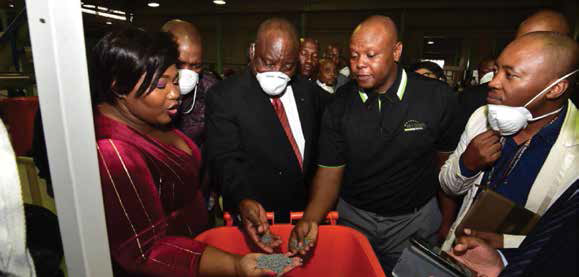 waste that lands up in fields, dams and landfill sites.
waste that lands up in fields, dams and landfill sites.
East London business woman Phumeza Ceshemba has made a living for herself and dozens of other families from a waste recycling business in Fort Jackson on the outskirts of Mdantsane, Eastern Cape.
Ceshemba, who learned the waste recycling business from her mother, is driven by a passion to protect the environment from harmful toxins.
She started Afri-Waste in 2017 and co-owns it with her husband Thozamile. The plant is a beacon for Eastern Cape’s recycling initiatives, and currently has 17 employees while dozens of other families benefit through spin-offs.
Afri-Waste is a poster child for the black industrialist programme and Operation Phakisa Chemicals and Waste Economy.
The plant was recently visited by President Cyril Ramaphosa, Environmental Affairs Minister Nomvula Mokonyane, Minister of Co-operative Governance and Traditional Affairs Zweli Mkhize, Eastern Cape Premier Phumulo Masualle and various government leaders.
The Eastern Cape Department of Economic Development, Environmental Affairs and Tourism reported in its 2017/18 Annual Report that it had finalised five waste management licence applications for waste-recycling initiatives and composting facilities in various regions (OR Tambo, Chris Hani and Amathole districts).
These facilities will promote and improve the rate of waste recycling in the province as an alternative method to waste management, other than disposal of waste in landfills, the department said in its annual report.
Afri-Waste collects and sorts waste plastics including carry bags and plastic bottles. They are washed and turned into raw plastic which can be further processed and turned into other plastic products.
The benefits of the Ceshembas’ business have a ripple effect on various small, medium and micro-enterprises as well as their employees.
“We’ve got a Workers’ Trust that benefits 17 people and over 100 cooperatives and waste pickers also benefit. In addition, we collect from landfills,” said Ceshemba, adding that they are the only company in the Eastern Cape that washes plastic.
She said that funding from the government made her dreams a reality.
Operation Phakisa Chemicals and Waste aims to increase the contribution of the waste economy from R24.3 billion to R35.8 billion and create 70 000 direct jobs and 127 000 indirect jobs.
Land handed over to communities in Northern Cape
Land handed over to communities in Northern Cape tsoanaDeputy President David Mabuza says government is working hard to restore the dignity of all South Africans through the Land Reform Programme.
“As government, we want to restore human dignity. We must be at the forefront of transformation,” the Deputy President said at a land handover ceremony in Seoding, Northern Cape, recently.
The GaMopedi and Seoding handover forms part of government’s restitution and land reform programme, in line with the Constitution. 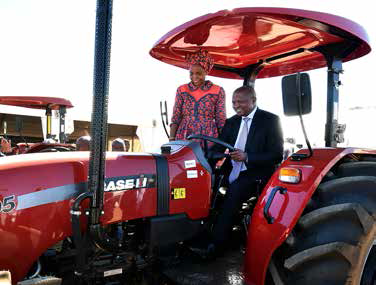
The beneficiaries include the Dukathole community, which consists of residents who moved to Germiston between 1920 and 1927 to look for job opportunities in the mining sector.
Both the GaMopedi and Seoding communities have received about 9 000 hectares of land, which will be used for agricultural production.
Community leader Atho Niemand said that it has been a long journey to this day.
“Some of the people with whom we started this journey are no longer alive. It would have been nice if they were here to witness this day, but we thank our government for finalising the process.
“We are going to use the land productively,” Niemand said.
The handover comes at a time when the National Assembly is still dealing with a proposed amendment to the Constitution on expropriation of land without compensation.
The Draft Expropriation Bill was published on 21 December 2018 for public comment.
The restitution programme has provided redress to a large number of victims of land dispossession who lodged claims with the government.
Government is prioritising claims that were lodged no later than 31 December 1998 and are yet to be finalised.
The remaining backlog is primarily the result of competing claims that have been lodged or untraceable claimants.
Government has programmes to empower claimants to use land productively for job creation, food security and attracting young people to farming.
Mahlangu's life through the eyes of Rametsi
Mahlangu's life through the eyes of Rametsi JoySolomon Kalushi Mahlangu should be remembered for what he lived for as much as what he died for.
These are the words of Thabo Rametsi, who received the Best Actor Award during the inaugural BRICS Film Festival in India in 2016 for his role as Solomon Mahlangu in the movie Kalushi.
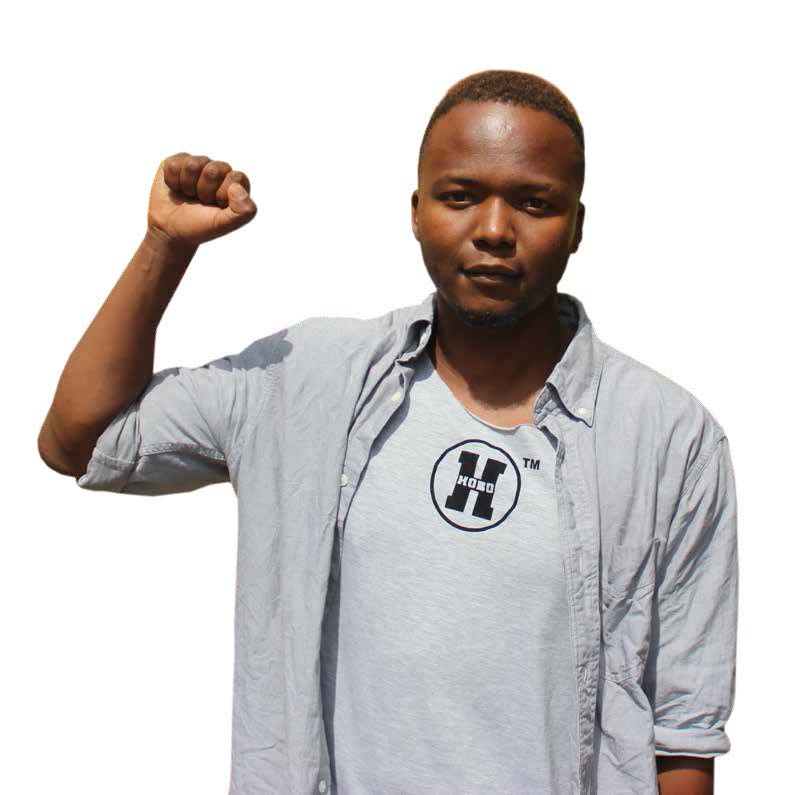 Rametsi said Mahlangu lived for education and that this passion should be remembered as South Africa commemorates the 40th anniversary of his execution.
Rametsi said Mahlangu lived for education and that this passion should be remembered as South Africa commemorates the 40th anniversary of his execution.
Mahlangu was hanged by the apartheid regime at the Pretoria Central Prison on 6 April 1979 after being wrongly accused of murder. He was only 23.
Rametsi remembers discovering the man behind the Struggle hero when he landed the role of Mahlangu in Kalushi.
“Although I had always seen his name when driving on Solomon Mahlangu Drive in Pretoria, I only learned more about his life when I did research for the role,” said Rametsi.
He found Mahlangu’s story to be sad, but it empowered him as a young black South African man.
Ahead of shooting the movie, Rametsi got an opportunity to re-walk Mahlangu’s journey with the late Struggle hero’s brother Chief Lucas Mahlangu and his uncles. At that time, Mahlangu’s mother had already passed on.
“For about two months, the family took our team on his life journey, from KwaNdebele in Mpumalanga to Mamelodi in Pretoria where he lived, to initiation school, to school and up to the gallows at the Kgosi Mampuru II Correctional Facility in Pretoria where he and many others were executed,” he reminisced.
He understood Mahlangu’s character as that of a young Mamelodi man who loved education, who did well in school and also had a small business selling fruit while studying to sustain his family.
“He wanted to be a teacher in order to empower young people. He understood the value of education,” he said.
“I think that is why when the events of June 16 1976 happened… it hit him the most because the protest was about fighting the Bantu education system,” he added.
He got to appreciate Mahlangu’s story when they were shooting a scene for the movie.
“The director, Mandla Dube, made me understand that we were narrating the story of many South African families that do not have a father… of a mother who raised her two sons and she was about to lose another family member because he is leaving… he got arrested at 19 years of age and got hung to death at the age of 22,” he said.
“He would never love again, or be in a relationship, or have a job, or start his own family, or have fun… he did not get to know the simple and small things that you and I take for granted,” he said.
How did Mahlangu die?
The re-enactment of his final moments before execution depicted the 52 steps he took to the gallows in the Pretoria prison.
“The story that we were told is that there were a number of young people who were dragged and forced to the gallows to be hung to death, some were screaming and crying… but he refused to be held. He just walked up the stairs with bravery to the rope that was used to hang him,” he said.
“He was a young man forced to fight a grown person’s war,” he added.
Democracy and your responsibilities
Rametsi said he appreciates the many opportunities that he enjoys as a young South African today, but he has a problem with how many citizens do not take personal responsibility for changing their lives.
He said young people should commemorate Mahlangu’s life by seizing all opportunities and participating in the democracy Mahlangu and others fought so hard for, by voting in the upcoming election.
“If you think your vote can make a difference then please make it count, but beyond your vote what are you doing as an individual to contribute to the growth of our country? It cannot just end with an X on a ballot paper,” he said.
“If all of us as South Africans make a conscious decision to be great, we will become incredibly successful and our country will be successful too,” he said.
Make your vote count
Make your vote count vuyelwanUnion Buildings
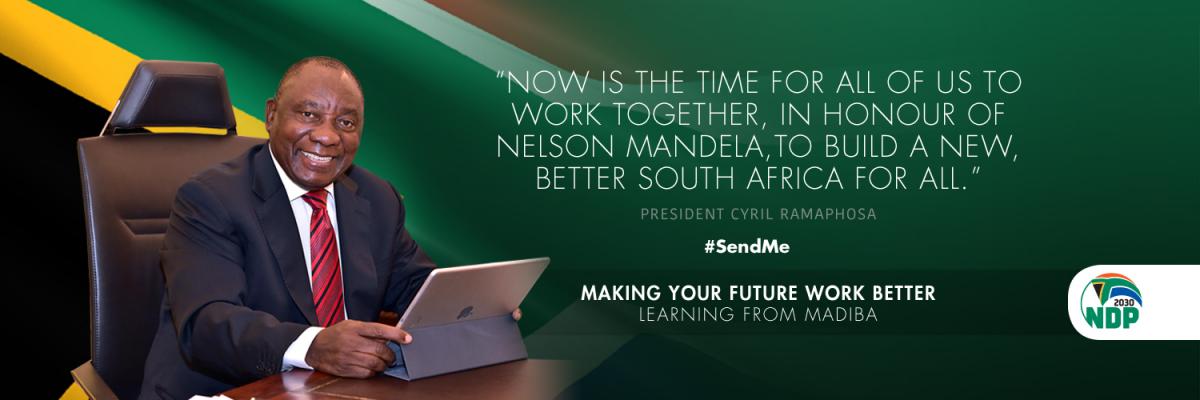
On Wednesday, 8 May 2019, we will all be heading to the polls to cast our votes during the sixth National and Provincial Elections in a free and democratic South Africa. It is an exciting time in our country as we also commemorate 25 years of our hard-won freedom and democracy.
As a nation, we have since 1994 made great strides and much progress in improving the lives of South Africans, especially those who were historically disadvantaged.
To ensure that we maintain and speed up the pace of change in our country, I urge all fellow South Africans to go out in their numbers to vote for the political party of their choice.
South Africa’s future is in the hands of young people and those who are eligible to vote must exercise their power to choose how they want the country to be governed. 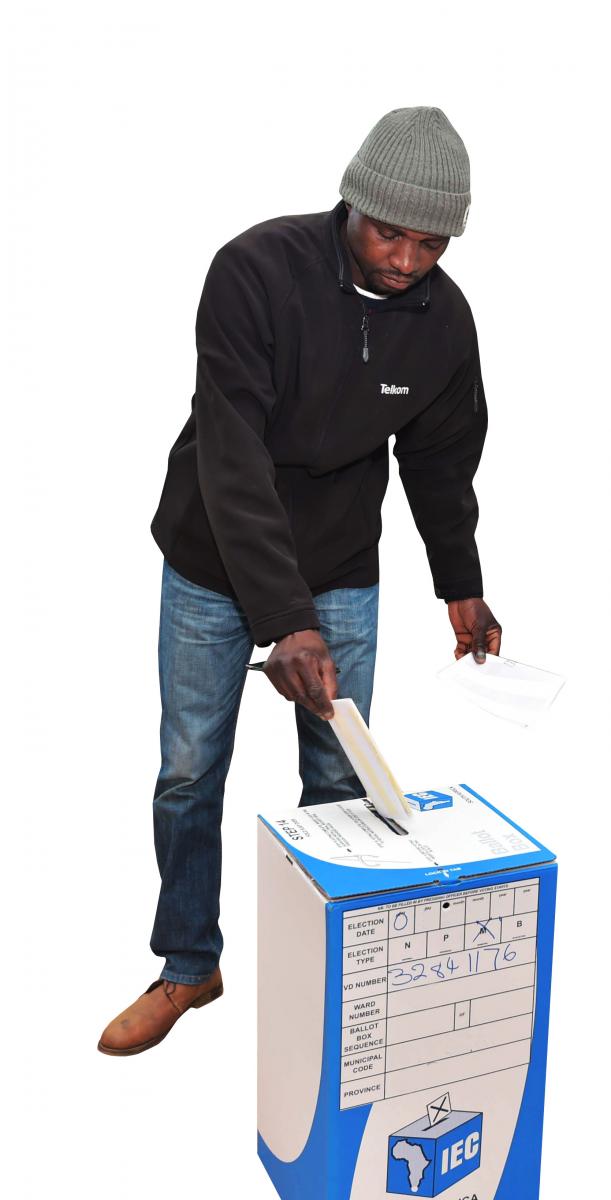
According to the Independent Electoral Commission, South Africa has one of the youngest populations in the world. The voting population’s largest age group is between 20 and 29 years – an estimated 10.8 million people.
Many of the young people in South Africa have great ideas on how to take this country forward and improve the lives of all South Africans. Some of them are already doing good things in their communities and are contributing immensely to growing the economy.
By casting their votes in large numbers, young people will be honouring those who paid with their lives or made other sacrifices to secure the right to vote. Throughout history, young people have been hailed for their bravery and power to change social injustices.
This was evident in the youth of 1976 who took a stand against inferior education and apartheid laws. Most recently, young people took to the streets to demand change in the country’s education policy through the #Fees Must Fall movement.
Now is the time for that same fighting spirit to come alive during the national general election. Our democracy and right to vote must never be taken for granted. If you want better streets, better public transport, better municipal services and better community infrastructure, you should make your mark on election day. Elections that are regular, free, fair and vibrant are part of our identity as a new nation.
Our elections are about creating an inclusive South Africa on the basis of equal participation.
I urge all South Africans who are registered to vote to make their mark in the upcoming elections, as the future of our country is in your hands. Your vote is your power and your influence. Do not deny yourself the opportunity to move South Africa forward.
Let’s go out in our numbers and vote on 8 May 2019.
Mother receives National Order for brave son
Mother receives National Order for brave son vuyelwanA 10-year-old deaf boy who died saving another child posthumously received a National Order, the Order of Mendi for Bravery in Silver.
The National Orders are the highest awards that South Africa bestows and are presented annually by the President of South Africa.
Thapelo Tambani’s mother Sarah Tambani received his award from President Cyril Ramaphosa, in recognition of the little boy’s selfless act of saving another life, which led to his unfortunate demise. 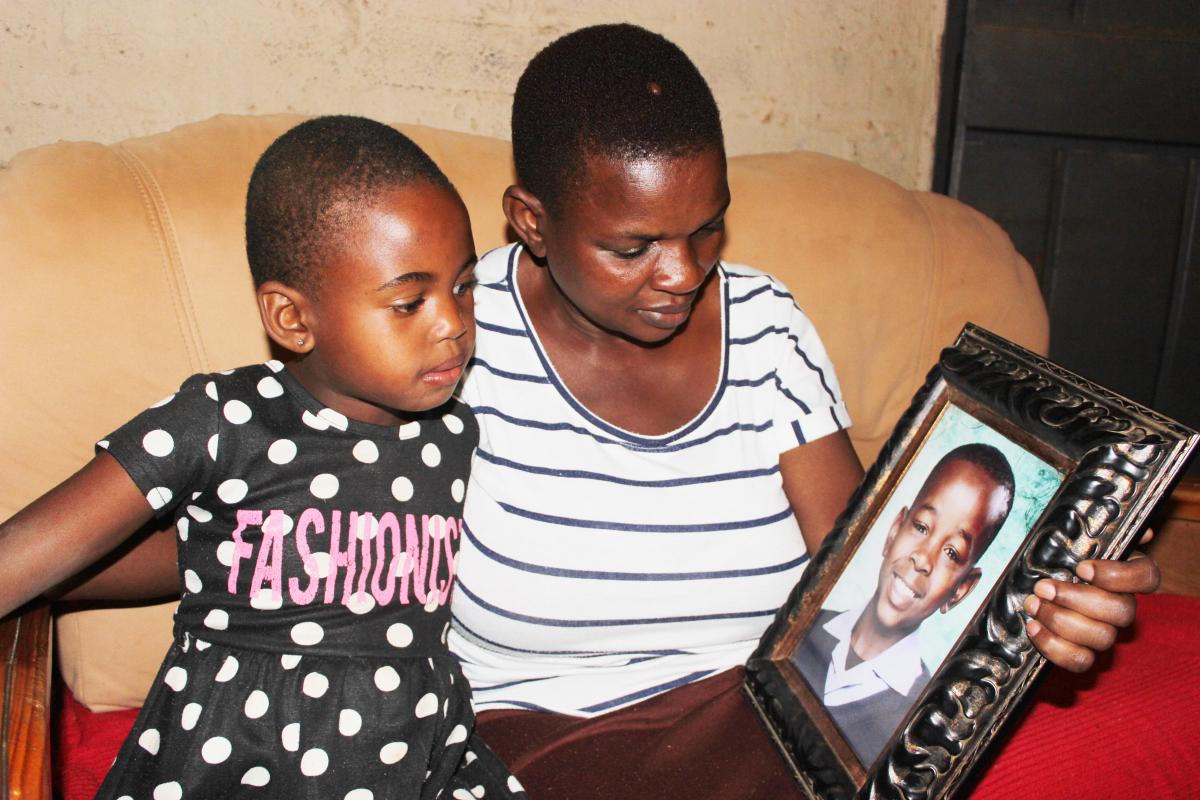
Thapelo drowned last year in a muddy construction pit after successfully pulling a friend to safety.
The tragedy took place in Soshanguve, north of Pretoria. According to media reports at the time, Thapelo’s friend had fallen into the large pit, which was filled with muddy rain water, at an excavation site. Thapelo managed to save his friend but was overcome by the mud.
Thapelo's mother said his heroic act, although painful, was part of his character – he was a helpful boy, she said.
She said her son was very clever and had received three certificates of excellence at school.
Speaking ahead of the ceremony, the mother said that her son’s hearing impairment did not hold him back.
“Even though he could not hear or speak, he managed to communicate with us. He was also teaching his siblings how to use sign language,” she said.
The grieving mother said even though the National Order would not completely heal the pain of losing her son, it would bring some comfort. “It still hurts. The pain of losing my son is still there but I have hope that this will help,” Tambani told Vuk’uzenzele.
Recalling the events of that fateful day in February 2018, she said her son had arrived back from school and changed before going to play with his friends. The mother said she was at work when she got the call informing her of the dreadful news.
“He drowned just after four and his body was only recovered around nine in the evening,” she said. The mother said Thapelo’s 14-year-old brother, who was playing nearby, had tried to rescue him but could not locate him in the muddy water.
Tambani said she still thinks of Thapelo and his role in the home. “You miss a person’s actions when they are gone. I still think of how he would make food around the house and help his siblings with chores,” she said, adding that he was her last born child.
Although she is not sure who nominated her son for the award, she is thankful to them.
“I was not even aware someone had done this," the mother said.
The National Orders were conferred by President Ramaphosa at the Union Buildings on 25 April.
Netball World Cup to inspire greatness
Netball World Cup to inspire greatness angenithaBorn in Durban’s Mpumalanga township, the captain of the national netball team has had many doors opened to her through her participation in the sport.
The hosting of the Netball World Cup in South Africa will greatly benefit the development of the sport, believes Proteas captain Bongiwe Msomi.
The awarding of the hosting rights of netball’s premier tournament to South Africa will help grow the sport among aspiring players, she said.
South Africa will be the first African country to host the tournament since it started in 1963. 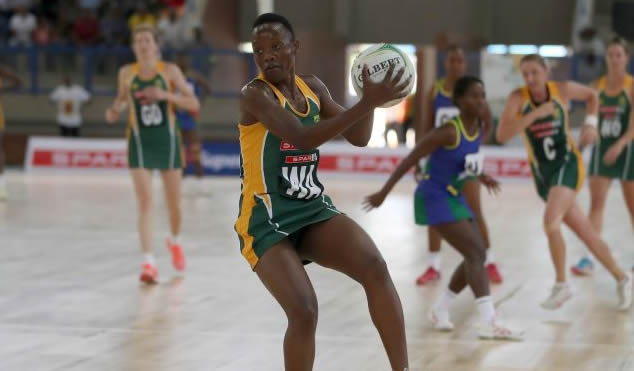
The centre-cum-wing attack said youngsters now have a chance of representing their country on home soil in the 2023 tournament.
“It is possible. It might seem far away but it is really not. Start working now towards achieving this exciting goal because you can. It is all about the hard work, commitment and discipline you put in now. Do not wait.” said Msomi, who is currently playing for England’s Wasps club.
She said the best way to grow the game is for the country to set plans and ensure they are achieved. “Already, the interest in participating in the tournament is high,” she said, adding that South Africa must do what it takes to host a successful tournament that makes both the country and the continent proud.
She said with the right structures in place, young girls could be selected for the national team to participate in the tournament and the team could even go on to win. “Anything is possible. The Spar Proteas has proven this during recent competitions,” she said.
“We must remember that the efforts we make now will benefit generations to come and ensure netball grows in popularity,” she said.
The 31-year-old captain said young people must know how life-changing participation in sport can open doors for personal growth and development.
The captain advises young girls who want to play for the Proteas to be disciplined, adding that hard work and commitment are essential for success.
New school addresses overcrowding in classes
New school addresses overcrowding in classes angenithaLearners in Thabong Township in Welkom no longer have to travel long distances just to get to school, thanks to the new state-of-the-art school that was launched in the area.
The Adelaide Tambo Secondary School was built to the tune of R57 million as a direct response to overcrowding in other schools in the Lejweleputswa District in the Free State.
The school has about 24 classrooms, two science laboratories, a media centre, school nutrition programme centre, guard house, garden centre and hall.
It was officially launched by President Cyril Ramaphosa, who said the school is special, not only because it is named after Adelaide Tambo but also due to the world-class facilities it has.
Tambo was a struggle heroine and political activist who contributed to South Africa’s freedom and liberation.
The principal of the school Motsumi Mohapi told Vuk’uzenzele that the school will, in the near future, produce fruits to the entire district because of the nature of subjects it will be specialising in.
“Our school is going to specialise in mathematics, physical science, commercial subjects and entrepreneurship because we want to equip our learners with skills that will help them create jobs for themselves and the communities they live in. This will also assist in improving the economy of the Free State and our country,” Mohapi explained.
He said the school is currently offering education to Grade 8 and 9 learners, but it will gradually add more learners from Grade 10 until they get to Grade 12 in a period over three years.
“Our school has capacity to take close to 1 100 learners per year. It will really help to address the overcrowding that is currently experienced by its counterparts in our district. Parents will also not worry about having to pay for transport to get their children to school,” he said.
The new school is also a non-fee paying school. He said more jobs will be created for teachers in the province because as it gradually grows it will mean that more teachers have to be employed to teach the learners.
Nissan announces R3bn investment in Rosslyn plant
Nissan announces R3bn investment in Rosslyn plant tsoanaMany more motorists around the world will be driving Nissan vehicles produced in South Africa.
President Cyril Ramaphosa officiated over the Japanese automotive giant’s announcement of a R3 billion investment at its Rosslyn plant in the capital.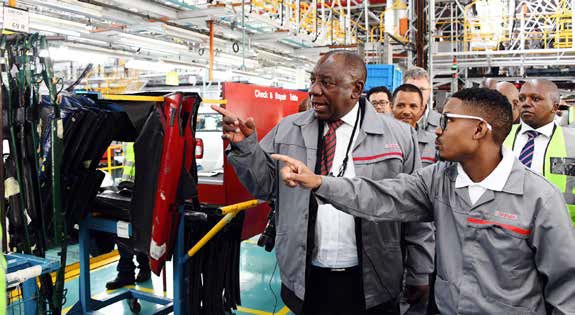
“It is a matter of great pride for us that many more motorists around the world will be driving vehicles that bear the industry and craftsmanship of South African workers,” said the President at the official ceremony held recently.
The investment follows South Africa’s inaugural Investment Conference in 2018. At the conference, South Africa announced that it wanted to raise R1.4 trillion over the course of the next five years.
Welcoming the investment, the President said many may have dismissed it as a “pipedream that “would never happen”. However, the country is “proving them wrong” in the drive to raise the funds.
Nissan also invested R150 million in the training and upskilling of workers, which will prepare them for the future of work in an era of technological advancement.
“In this era of technological advancements and the Fourth Industrial Revolution, we must be deliberate in making the necessary investment to preserving jobs as well as creating more jobs,” said the President.
Artificial intelligence, he said, must not be seen as being job destructive but as an advancement that can create jobs.
Jobs and local content
Nissan, which has been in the country over the last 56 years, will add a further 1 200 full-time jobs across the value chain with the start of the production of the new Navara for the local and continental market.
“We see Africa as [a place] we can make a real contribution to and improve the lives of the people who live here through industrialisation,” said Nissan Africa’s Managing Director, Mike Whitfield.
The production of the vehicle will initially include a 35 percent local content element, which will be ramped up to reach 60 percent local content in total.
“This will generate an estimated R5.8 billion new economic value every year in the immediate region,” said Whitfield.
Online school applications to open on 13 May
Online school applications to open on 13 May angenithaGauteng parents and guardians take note – online applications for learners going to Grade One or Grade Eight in 2020 will open at 8am on 13 May and close on midnight on July 15 2019.
Parents can expect an easier application system, thanks to amendments to the newly introduced admissions regulations.
Gauteng Education MEC Panyaza Lesufi said that the amendments seek to ensure equitable access to all learners regardless of class, race or language.
“The regulations also define new feeder zones that aim to overcome the apartheid geography,” he said.
When applying online, parents have the choice to submit five applications, based on the following criteria: home address in feeder zone, a sibling at desired schools, work address of either parents in feeder zone, preferred school within a 30km radius of home, and beyond a 30km radius of home.
“Parents seek the best school for their children and given our past, the perception is that former Model C schools are synonymous with quality and township/rural schools are of poor quality.”
To challenge this belief and raise awareness of the strides made to improve township schools, the Gauteng Department of Education will rank schools by performance to provide parents with objective information.
Once the online application has been done, the applicant will receive an SMS notification with a reference number. For this reason, applicants are urged to use their own cellphone number or email address. All communication with the parent regarding usernames, passwords, waiting lists, etc will be done through via the supplied cellphone number or email address.
Log-in details and reference numbers must be stored in a safe place.
Forms needed
Applicants should submit the following documents to the school within seven working days:
- Certified copy of the ID of the parent/legal guardian or a sworn affidavit if the parent/legal guardian does not have an ID.
- Non-South African citizens should submit certified copy of their passport, valid visa or temporary/permanent residence permit/ asylum seeker or refugee permit.
- Proof of home address.
- Certified copy of child’s birth certificate.
- Non-South African citizens should submit a study permit/visa or child’s asylum/refugee permit.
- Clinic immunisation card if applying for Grade One.
- Current school academic report and transfer if applying for Grade Eight.
- Proof of sibling relationship where sibling option is used to access a particular school.
If the required documents are not available, the school will provisionally accept the learner and the applicant will have two weeks to submit proof that they have applied for the documentation.
The placement of learners will take place from 27 August to 20 September 2019.
Important information:
- Visit this website to apply online www.gdeadmissions.gov.za.
- Frequently asked questions and other information is also available on the website.
- Applications must also be made for children in Grade R who hope to do Grade One in the same school.
- Remember, first-come, first-served.
- Parents or guardians who cannot access the internet in their households can visit their nearest public school, district admissions centres, community libraries or community centres for admissions.
- For help, call the toll-free number 0800 000 789.
Residents hail new library
Residents hail new library tsoanaCommunity members of villages within the Bushbuckridge area are happy about their new library.
The Bushbuckridge library is said to boost knowledge, literacy and academic skills in the area.
The library is a project of the provincial Department of Culture, Sport and Recreation. It also aims to keep young people away from social ills such as drug abuse and crime.
Kgomotso Hlatshwayo, a resident in the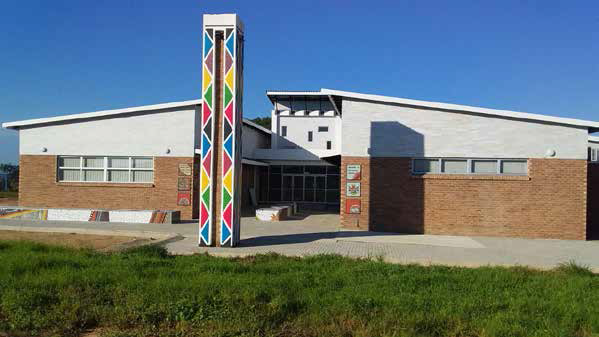 area, said he was ecstatic about the opening of the facility.
area, said he was ecstatic about the opening of the facility.
Hlatshwayo also runs a community soccer team as a way of working with the youth.
He said the library will help young people to access information easier.
“In the past I would find that the boys in my soccer team do not have data for accessing the Internet. Now that the library is very close to their homes it will be very easy for them to access the information they need,” said Hlatshwayo.
He also added that prior to the opening of the library, youth in the area had to travel for about 45 minutes to source information
from the nearest Dwarsloop library.
“The library will also assist in terms of reading. We need to read more,” said Hlatshwayo
University of South Africa (UNISA) student, Comfort Makaringe, is a resident of the neighbouring Rolle village.
Makaringe is studying part-time for a Human Resources degree. He said with the opening of the library he will be able to save money on transport and book-buying costs.
In the past he had to go to bookstores in Nelspruit to buy books needed for his studies. He can now borrow books from the new library, Makaringe said.
The provincial department will also be opening another library at Kanyamazane.
South Africa honours Albertina Sisulu
South Africa honours Albertina Sisulu LondekileCommunications Minister Stella Ndabeni-Abrahams has called on the South African Post Office (Sapo) to digitise the newly launched centenary commemorative stamp of struggle icon Albertina Sisulu.
“We have seen the interest that South Africans and people outside the country have shown in the stamps. They are selling… because people relate to the work that she did and [admire] the values and the principles she stood for,” Minister Ndabeni-Abrahams said.
The Minister on Tuesday launched the centenary commemorative stamp of Mama Albertina Sisulu and handed it over to her family at the Government Communication and Information System (GCIS) auditorium in Tshwane.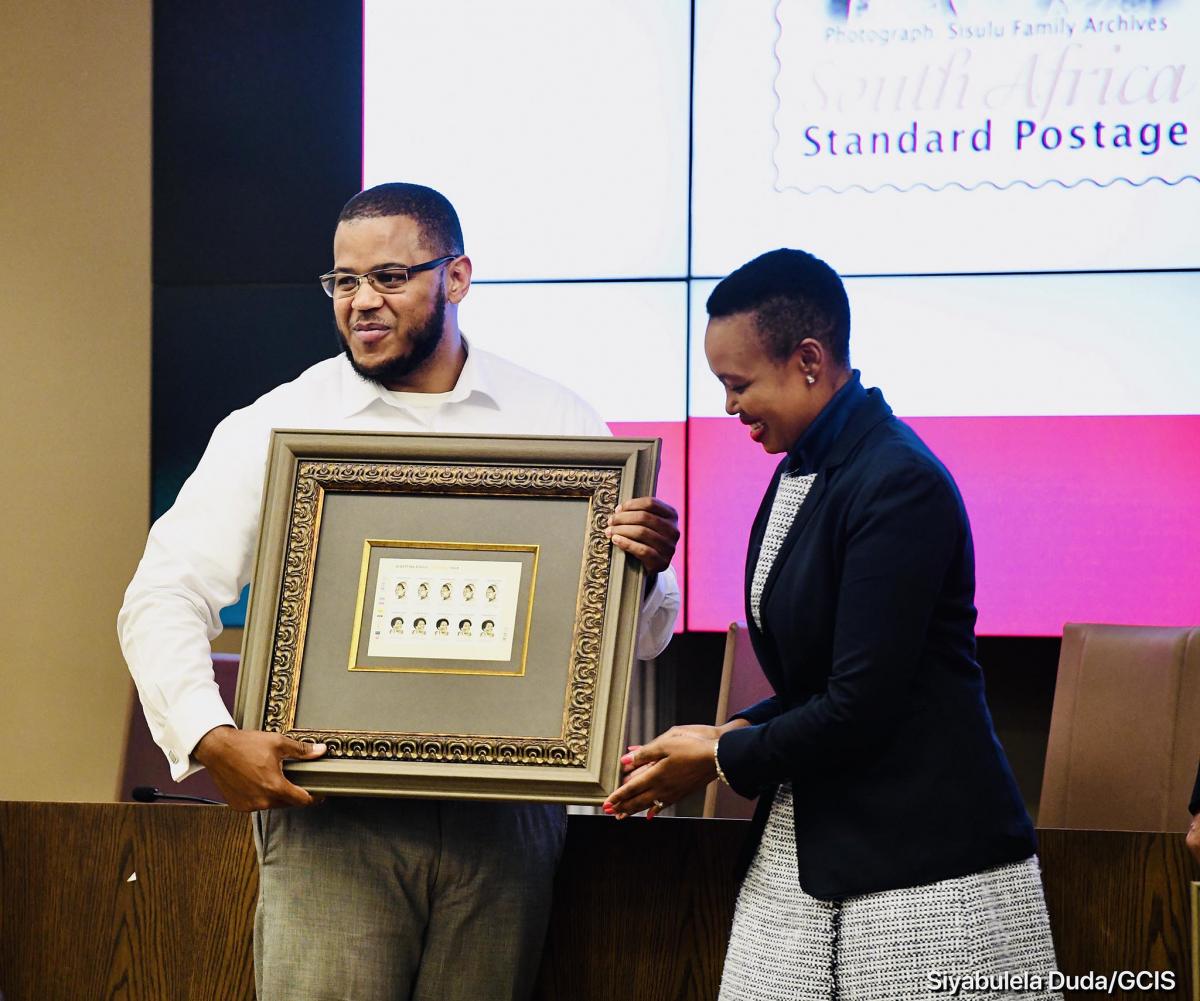
In November 2018, Cabinet resolved that a Commemorative Stamp for Mama Sisulu should be issued in honour of her centenary birthday, and in recognition of the significant and selfless role that she played in the country’s liberation.
Minister Ndabeni-Abrahams said the launch of the commemorative stamp presents an opportunity to keep the story of Sisulu alive.
“It’s never too late to honour those that have been an inspiration in our lives because we come from areas where there have been women who have not been recognised,” the Minister said.
The National Integrated Information and Communications Technology (ICT) Policy White Paper provides that a commemorative stamp may be issued to celebrate, amongst others, heroes and heroines who played a significant role in South Africa’s history, political landscape and those who contributed to its socio-economic development.
Sapo board member Phetole Rabohale said the stamps can be used for posting standard letters.
“We considered it appropriate to celebrate our mother, the stalwart who fought for our freedom and democracy, through an ordinary stamp which an ordinary citizen can buy and use for postal services.
“We have printed more than 100 000 sheets of the stamp and already most of the stamps have been sold. We hope that Ma Sisulu’s stamps will eventually become collectors’ items,” Rabohale said.
Sisulu's grandson, Duma Sisulu, said his grandmother felt a deep seated responsibility to create a better future for all.
“Gogo embraced the many challenges that were part of being Walter Sisulu’s wife, a freedom fighter in her own right. She never lost sight of the vision of a free and democratic South Africa," Duma said.
He thanked government for honouring his late grandmother with the commemorative stamp.
South Africans benefit from international relationships
South Africans benefit from international relationships angenithaPost-democratic South Africa has gained membership to a number of organisations that lend support to the country’s efforts to create a thriving society for all.
When the first democratic elections took place in 1994, the eyes of the world were on South Africa. We became a rare example of a country that had managed to peacefully emerge from many years of struggle. Since then, South Africa has played an important role on the world stage. 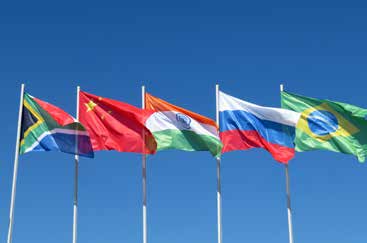
South Africa is currently a member of international organisations such as the United Nations (UN), the African Union (AU), the Southern African Development Community (SADC) and Brazil, Russia, India, China and South Africa (BRICS), all of which benefit the country.
Membership of the UN
The UN provides millions of rands in aid to its member countries. It supports disaster relief efforts, provides funding for health programmes and has a number of agencies that deal with various issues, such as human rights, disease and economic development.
In addition, UN special agencies such as the World Bank Group and International Monetary Fund have provided loans which have allowed the South African Government to fast-track programmes that support millions of needy South Africans.
BRICS membership
South Africa joined the BRICS group in 2010.
Our relationship with these countries has presented an opportunity to join other developing nations to improve economic growth, learn from successful initiatives and improve trade. South Africa’s involvement in BRICS has greatly improved our political position on the world stage. Investments from other BRICS nations have now created over 20 000 jobs.
Membership of the AU
Many African countries share common problems and through the AU, members are able to collectively find solutions. The AU has created a sense of unity amongst countries around the continent, helping our government to build strong relationships with our African counterparts. In 2020, President Cyril Ramaphosa will chair the AU, which will give South Africa the opportunity to further improve its influence and leading position on the continent.
Membership of the SADC
South Africa is one of 15 SADC countries, which gives us the opportunity to be part of an organisation that focuses on the unique issues in our immediate region. The SADC has greatly boosted our economy by promoting trade with southern African countries.
Special schools team returns as World Champions
Special schools team returns as World Champions tsoanaA group of Kimberley learners earned gold at the Special Olympics, proving that will and determination can help you conquer challenges and reach for the stars.
A special schools’ team from the Northern Cape overcame great odds to become world champions at the Special Olympics World Games in Abu Dhabi in March. Playing against teams from some of the world’s best footballing nations, the Northern Cape unified football team triumphed, winning 4-1 in the final against Spain.
The team received R40 000 in funding from the Northern Cape Provincial Government and when they jetted off to Abu Dhabi. Many of the team members had never flown before.
“This remar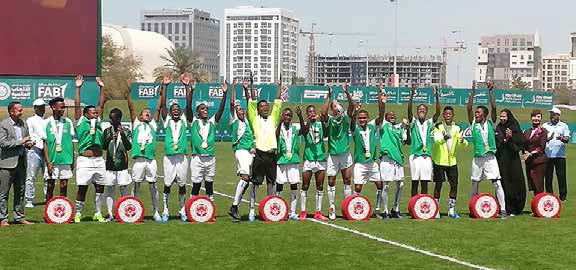 kable achievement showcases that our learners can perform at any level of competition with the rest of our country and the world, whether in public schools or special schools. They have shown that the Northern Cape has undiscovered talent which must be supported, so that learners can reach their full potential,” said Northern Cape Premier Sylvia Lucas on the team’s return to Kimberley on 22 March.
kable achievement showcases that our learners can perform at any level of competition with the rest of our country and the world, whether in public schools or special schools. They have shown that the Northern Cape has undiscovered talent which must be supported, so that learners can reach their full potential,” said Northern Cape Premier Sylvia Lucas on the team’s return to Kimberley on 22 March.
“We are extremely proud of the team and grateful for the management and guidance provided by the team managers, coaches and support systems. The team has risen above all odds, faced many challenges and came out on top.”
The team was made up of pupils from Boitumelo Special School, Technical High School and Boys’ High School. Pupils at the schools have learning difficulties, autism and other non-physical disabilities. They competed against 14 other teams in division three.
The team’s coach, Lebogang Diutlwileng, said that it was a wonderful achievement for a small team from South Africa to emerge as champions.
The team was joined at the tournament by officials from the provincial Department of Sport, Arts
and Culture, who provided support and encouragement throughout the team’s winning journey.
Hundreds of Northern Cape residents, along with government officials, were at the airport to welcome the team home – the boys proudly wearing their gold medals.
Captain Ethan Molatlhegi said that he was overwhelmed by the support received from the community and government.
Held since 1986, the Special Olympics World Games is the largest event of its kind, with 53 000 athletes competing in 23 sports.
Teen farmer makes dad proud
Teen farmer makes dad proud tsoanaAt just 19 years of age, a North West resident is already a successful farmer.
Being exposed to animals from birth paved the way for one of South Africa’s youngest farmers, Thabo Herman Dithakgwe. 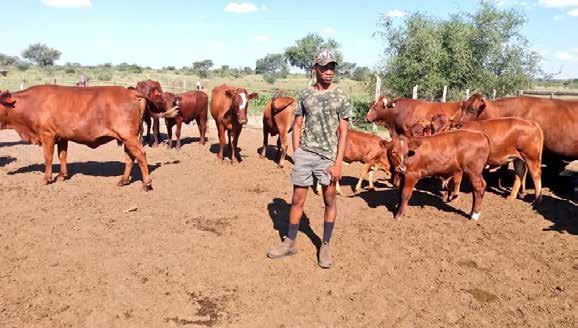
At just 19 years of age, he runs a successful agricultural business called Nasi Ditha Farming, Wildlife and Projects in Vryburg in North West.
The business started with a donation of a pregnant heifer from his father – also a farmer – in 2014, and today he owns a herd of cows, flock of sheep and over 50 goats, which he sells to local buyers in Pomfret and Morokweng.
“When the heifer gave birth to a bull calf, I waited for it to grow and sold it to a local farmer. I used the money to buy more cows,” he explained.
He comes from a family of farmers and was inspired by his father and late grandfather.
He said his family became part of a communal farm called Constable Farm, after his father and uncles won a land claim under Barolong Boo Maiketso Communal Property Association from the government in 2015.
He went on to register his own company last year whiles he was doing matric, although he already had livestock of his own by then.
“My family has been very supportive of what I do… I was raised in a family of farmers. Even my aunts, uncles and grandparents have always been into farming. I used to visit my grandparent’s farm when I was just a toddler and I grew up loving pets as well. I am just a farm boy,” he added.
Dithakgwe is currently doing a mixed farming course at the Potchefstroom College of Agriculture.
His livestock includes Bonsmara cattle and mixed cattle, Boerbok goats and a few indigenous goats, as well as a cross-breed of Van Rooy and Dorper sheep.
His business is also gradually growing into construction projects such as the building of animal handling facilities, including kraals.
“I have a team of cousins who were unemployed and they assist me with construction jobs,” he said.
So far, he has managed to create two permanent jobs on the farm. One employee manages small livestock and the other manages cattle.
He aspires to grow the business and be able to employ over 1 000 people in his community.
The pride of South Africa
The pride of South Africa vuyelwanActs of valour and excellence were honoured by President Cyril Ramaphosa when he bestowed the National Orders on South African and foreign nationals who have played a significant role in the development of South Africa.
This year’s National Orders, conferred on 25 April, honoured people from all walks of life, including:
Mary Twala-Mhlongo
Mhlongo, who has starred in many television and cinematic films, received the Order of Ikhamanga. She starred in Sarafina, A Love in Africa and Taxi to Soweto, for which she won a Best Supporting Actress award. 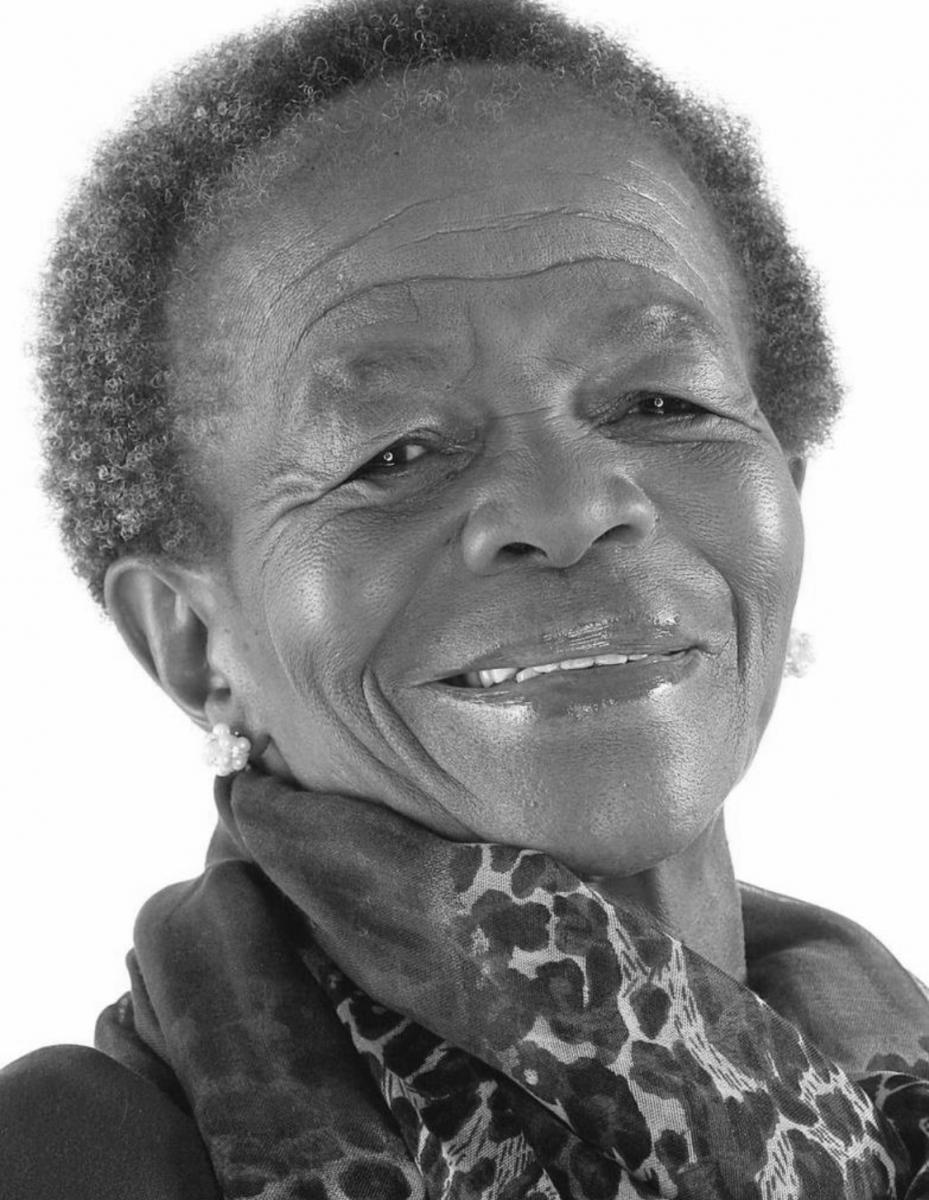
The veteran actress has had leading roles in Soul Buddyz, Yizo-Yizo and Hlala Kwabafileyo, which won her a best Comedy Performer award. In 2011, she was nominated as the best supporting actress at the Sixth Africa Movie Academy Awards. She is the mother of celebrity Somizi Mhlongo
Yvonne ìChaka Chakaî Mhinga
Mhinga’s career spans decades. Known as the Princess of Africa, the artist-cum-philanthropist has produced time-withstanding music with albums such Umqombothi, her debut album I’m in love with the DJ and its sequel Thank you Mr DJ. Mhinga is involved in charity work through her Princess of Africa charity organisation which champions change in health and education. She received the Order of Ikhamanga.
Jacques Kallis
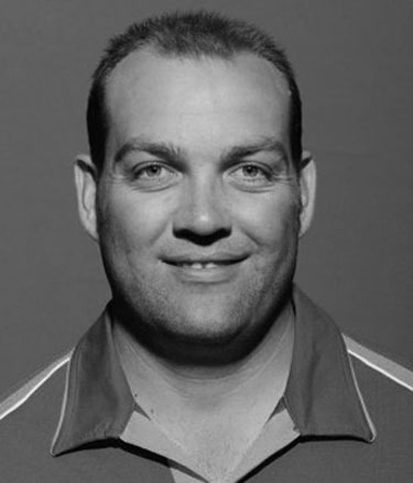 The former all-rounder is regarded as one of the top professional cricketers.
The former all-rounder is regarded as one of the top professional cricketers.
In the 166 test matches he played for South Africa, he came close to matching India’s Sachin Tendulkar’s world record for centuries scored. Kallis was named the Leading Cricketer in the World in the 2008 Wisden Awards. In 2005, he was crowned the International Cricket Council (ICC) Test Player of the Year and ICC Player of the Year. In 2013, he become the fourth batsman in the world to pass 13 000 test runs. He was awarded the Order of Ikhamanga.
Madagascar President Admiral Didier Ignace Ratsiraka
The Order of the Companions of OR Tambo was awarded to the two-time former Madagascar president. The former head of state allowed the ANC to set up Radio Freedom during the struggle against apartheid. Ratsiraka also allowed freedom fighters from the liberation movement to settle in his country.
The late Edna Molewa
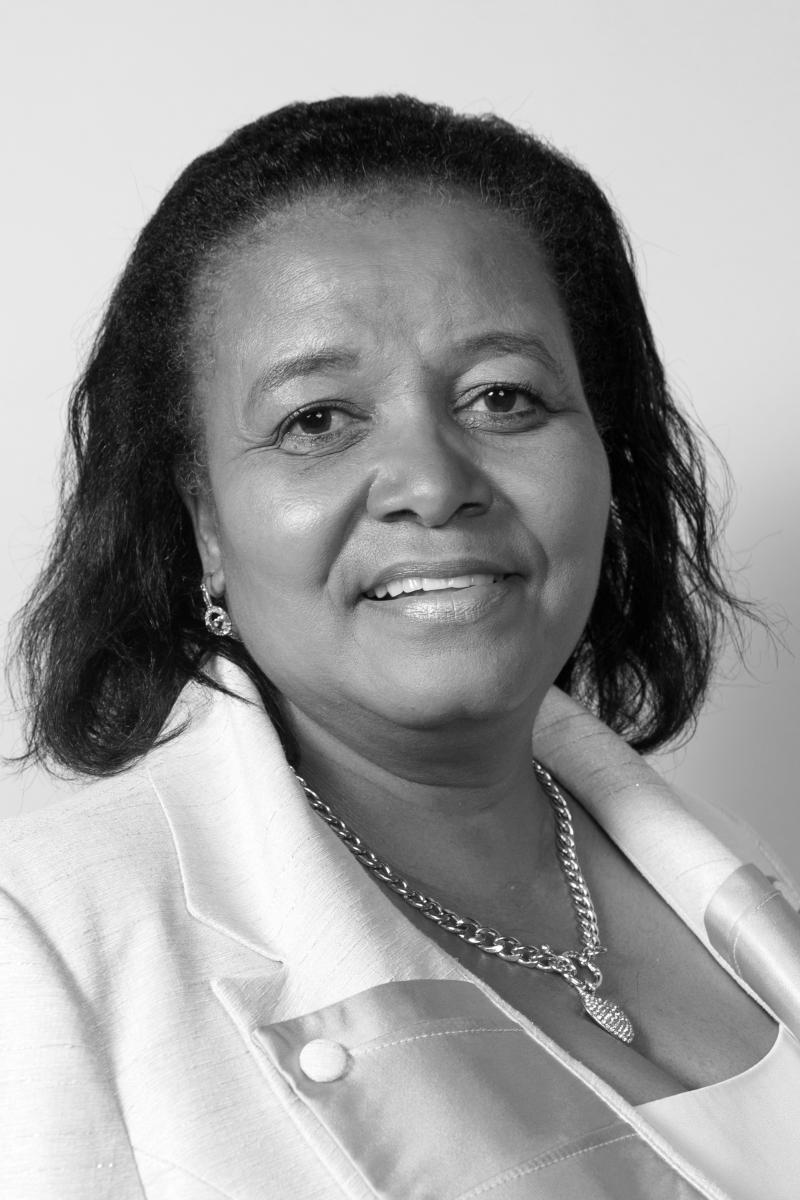 In recognition of her exceptional environmental contribution, the former Minister of Environmental Affairs was posthumously awarded the Order of Mapungubwe. She held a number of positions in government, including Premier of the North West. Molewa championed the establishment of three United Nations Educational, Scientific and Cultural Organisation world heritage sites and acted in place of the President eight times during her era, which began in 2009 and ended with her death in 2018.
In recognition of her exceptional environmental contribution, the former Minister of Environmental Affairs was posthumously awarded the Order of Mapungubwe. She held a number of positions in government, including Premier of the North West. Molewa championed the establishment of three United Nations Educational, Scientific and Cultural Organisation world heritage sites and acted in place of the President eight times during her era, which began in 2009 and ended with her death in 2018.
Prof Ari Sitas
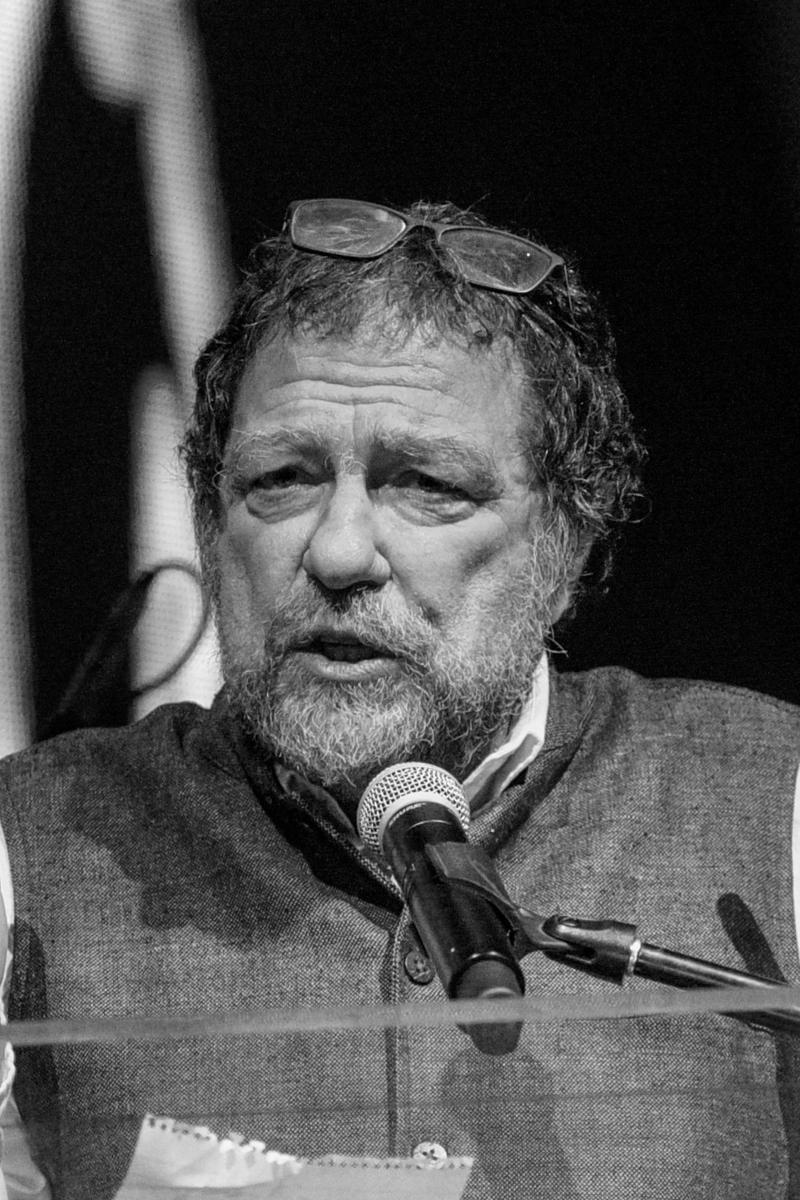 The Order of Mapungubwe was conferred on the South African BRICS Think Tank chairperson Prof Sitas. Currently, he is the country’s BRICS Think Tanks council representative. The founder member of Junction Avenue Theatre Company is also the Head of Sociology at the University of Cape Town. He has published The Mandela decade 1990-2000: labour, culture and society in post-apartheid South Africa, the RDP Poems and The Flight of the Gwala-Gwala Bird, among other publications.
The Order of Mapungubwe was conferred on the South African BRICS Think Tank chairperson Prof Sitas. Currently, he is the country’s BRICS Think Tanks council representative. The founder member of Junction Avenue Theatre Company is also the Head of Sociology at the University of Cape Town. He has published The Mandela decade 1990-2000: labour, culture and society in post-apartheid South Africa, the RDP Poems and The Flight of the Gwala-Gwala Bird, among other publications.
Thokozani Majozi
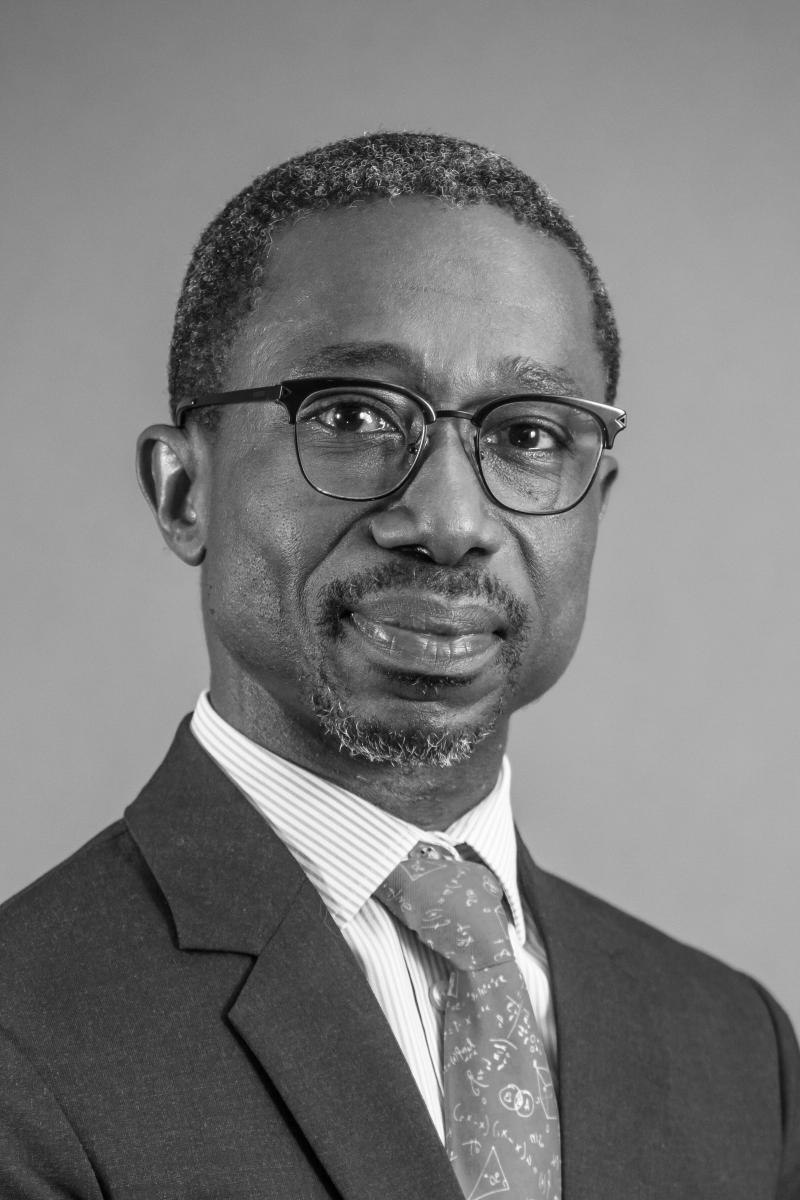 Chemical and metallurgical engineering professor at the University of the Witwatersrand, Majozi received the Order of Mapungubwe. Majozi has made significant scientific contributions in the area of chemical process integration. The researcher has been awarded for his work, receiving the Burianec Memorial Award in Italy, the S2A3 British Association Medal (Silver) and the South African Institute of Chemical Engineers Bill Neal-May Gold Medal. He is a credited author and co-author of more than 190 scientific publications.
Chemical and metallurgical engineering professor at the University of the Witwatersrand, Majozi received the Order of Mapungubwe. Majozi has made significant scientific contributions in the area of chemical process integration. The researcher has been awarded for his work, receiving the Burianec Memorial Award in Italy, the S2A3 British Association Medal (Silver) and the South African Institute of Chemical Engineers Bill Neal-May Gold Medal. He is a credited author and co-author of more than 190 scientific publications.
Braam Jordaan
For his activist role in championing sign language and the human rights of hearing-impaired people around the world, Jordaan received the Order of the Baobab. Born profoundly deaf to deaf parents, Jordaan is a World Federation of the Deaf representative.
Tony Trew
One of the founding officials of the Government Communication and Information System, Trew received the Order of Luthuli. The politician and discourse analyst was awarded for his role in the struggle against apartheid as well as his input into government communications, which is still visible today. Trew served in the Office of President Nelson Mandela.
To read more about National Orders visit: www.gov.za and www.thepresidency.gov. za/national-orders
Top beaches fly tourism flag high
Top beaches fly tourism flag high tsoanaGood Green Deeds
Newly trained beach stewards are hard at work helping beaches maintain or achieve their Blue Flag status.
Blue Flag status is the ultimate accolade for beaches across the world and a sure way to attract both domestic and international tourists to coastal towns.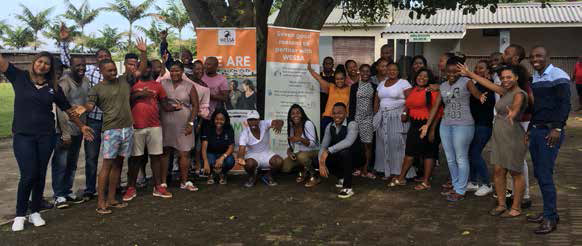
However, achieving Blue Flag status takes a collaborative effort and needs the buy-in of communities. A training programme presented by the Wildlife and Environment Society of South Africa (Wessa) and the Department of Tourism aims to create eco-warriors who are able to spread awareness of how litter impacts beaches and affects the tourism economy, while carrying out various other tasks at the beaches to which they are assigned.
The accredited training also positions trainees for entry into the coastal tourism sector.
One of the programme’s trainees said the skills he learnt will help him teach people from his village about the importance of recycling, especially at the beach.
Junior environment education officer Khanyisane Sikhakhane said he wants to impart the knowledge he has gained to his community. The 34-year-old said schools should have programmes to teach pupils about the importance of keeping the environment clean.
“They need to understand that the things people throw away at the beach are killing fish and other marine life,” he said.
The former Durban beachfront waiter said he joined the programme after reading an advert calling for trainees. “ I come from a rural area, I didn’t know much about the beach,” he said.
Speaking to Vuk’uzenzele from his home in the Ozwathini village, he said the training had opened his eyes to how marine life is affected by the decisions people make.
“Take for example how people litter on the beachfront because they say someone will pick it up. They do not think it will blow into the sea where fish will eat it. Turtles eat jellyfish and plastic floating in water looks like a yummy meal to them so they eat it and end up dying.”
At a recent graduation for the 200 KwaZulu-Natal participants, Wessa representative Nerosha Govender said: “The stewards have improved the tourism facilities and services offered at the Blue Flag beaches across three provinces. The Tourism Blue Flag programme has led to a cadre of skilled youth who are now better placed to access further employment.
Upcoming rugby star eyes the top spot
Upcoming rugby star eyes the top spot angenithaThe rugby game in the Eastern Cape has recently been devastated by the state of the Border rugby team, which is currently under administration.
There is however hope that the game can still be salvaged with the young players coming through the ranks.
Wing-cum-fullback for the East London Police rugby team Siseko Salman is living proof of this.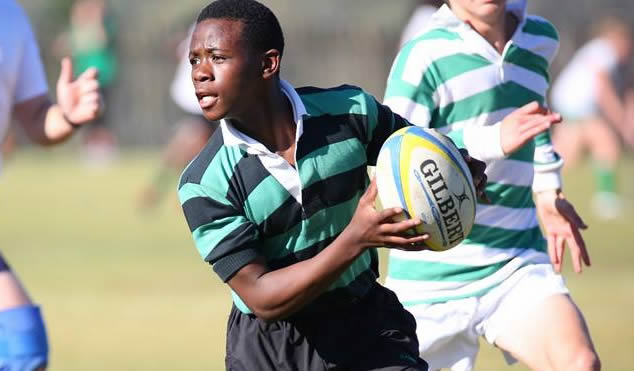
The 18-year-old is one of the shining stars who came out of the Super 12 rugby tournament recently hosted by the Eastern Cape Sports Confederation.
Salman, who aspires to play for the Sharks or the Blue Bulls, says the future of rugby could shine brighter with a push in the right direction.
“There are a lot of brilliant players in the teams but they are not recognised because the structures are very poor and they don’t have the right development,” Salman said.
The youngster, who previously played for the Border Rugby club, said he is one of the few to play for a team with the best training staff on offer.
Salman wants to represent his country in Springbok colours one day.
“We all wish to play for the Springboks but that’s hard to achieve at the moment, especially if you are not from college schools as they normally pick players from those schools instead of the more public schools.”
Salman said there are a lot of players who could be the next Siya Kolisi with the right grooming.
He believes that with the right structures, him and his peers have the potential to be among the best rugby players in the country.
Use power smartly
Use power smartly LondekileThe weather temperatures are dropping and many of us will be finding different ways to keep warm. In doing so, South Africans should be smart about how they keep their homes warm to save power.
Eskom has advised South Africans to switch on heaters only in the rooms that are occupied.
“Only heat the room you are occupying, and use the correct type of heater when you feel the need for extra warmth.
“A thermostat-controlled fan heater is ideal to quickly heat a room of 3 x 3 x 2.5 meters for one hour. A thermostat-controlled oil heater no bigger than 2 000W (watt) is the best choice to heat the same room for three hours. A thermostat-controlled heater no bigger than 1 000W (watt) is the most energy efficient option to heat it for eight hours,” Eskom said in a statement.
Eskom further advised the public to avoid using heaters between the hours of 5pm and 9pm as this is the peak period of residential power use.
The power utility also said gas heaters generate a lot of heat and do not use any electrical power.
Eskom also advised the public to use tape sealants, door snakes and closing unused chimneys among other things.
Acting Group Executive for Generation Andrew Etzinger said these tips would assist the state owned company to avoid load shedding and be able to supply electricity to all in the country.
“Eskom is currently faced with challenges at its power stations, which has led to the need for load shedding over the past few months.
“If consumers can assist us by using electricity smartly, it would help to reduce the need for load shedding, which is a measure used to balance the supply and demand of electricity,” said Etzinger.
